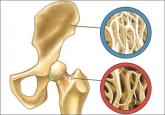Cases in Menopause
When should a menopausal woman discontinue hormone therapy?
Although this question is common in clinical practice, the answer isn’t clear-cut
Holly Thacker, MD, is Director of the Center for Specialized Women’s Health at the Cleveland Clinic in Cleveland, Ohio, and Professor of Obstetrics and Gynecology and Women’s Health at the Cleveland Clinic Lerner College of Medicine of Case Western Reserve University. She is the author of The Cleveland Clinic Guide to Menopause (2009) and Women’s Health: Your Body, Your Hormones, Your Choices (2007).
Dr. Thacker reports that she has served as a speaker for Amgen, Novartis, Novo Nordisk, and Shionogi; is a consultant for Myriad, Noven, and Pfizer; and is Executive Director of the National Speaking of Women’s Health Foundation.

Long-term data from the Women’s Health Initiative show a reduction in all-cause mortality among young women using menopausal hormone therapy, yet the investigators conclude that HT is unsafe for chronic disease prevention
In October 2013, the Women’s Health Initiative (WHI) investigators published a comprehensive overview of findings from their two hormone therapy (HT) trials, including extended follow-up representing 13 years of cumulative data.1 When I analyzed this latest WHI report, I initially focused almost exclusively on the data presented in figures and tables within the article itself, as well as on supplemental data presented on the Internet.2 Only then did I read the discussion comments by its authors. I would recommend this approach to anyone who has not yet reviewed this publication.
Overall, the WHI investigators maintain a negative stance toward the preventive and therapeutic benefits of menopausal HT. In my opinion, they also under-emphasize the importance of time since menopause in patient selection. These are the same WHI investigators who initially published un-adjudicated data3 and who delayed reporting age-stratified data.4 They also erroneously concluded that HT might increase the risk of ovarian cancer, even though their own data showed otherwise.5,6
The tables and figures contain the most important data point from this extended WHI follow-up: a reduction in all-cause mortality among women who initiated HT within 10 years of menopause, whether they used estrogen-alone (hysterectomized women) or estrogen-progestin therapy (women with an intact uterus), compared with women in the placebo group.1
Related Article: When should a menopausal woman discontinue hormone therapy? Andrew M. Kaunitz, MD (Cases in Menopause, February 2014)
DO THE RISKS OF HT REALLY OUTWEIGH THE BENEFITS?
The dramatic benefits of estrogen-alone HT, in particular, recently were highlighted by Sarrel and colleagues in an analysis that suggests that as many as 90,000 deaths may have occurred after publication of the initial WHI findings, when estrogen therapy was widely withheld.7 The study by Sarrel and colleagues also was highlighted in a recent issue of this journal.8
However, based on a “global index,” which has not been validated, the WHI investigators concluded that the risks of estrogen-progestin therapy outweigh the benefits regardless of age. Yet, the global index does not include all key concerns, omitting several quality-of-life concerns, including sleep disturbance, work productivity, and sexual function, as well as type 2 diabetes mellitus, osteoarthritis, and nonosteoporotic musculoskeletal problems. Nor does the global index provide individual weights.
Although the WHI data show reductions in the incidence of some serious chronic diseases, such as osteoporotic fracture and cardiovascular disease (in women within 10 years of menopause), Manson and colleagues make the blanket statement that HT should not be used for disease prevention, although they admit that it may be a “reasonable option for the management of moderate to severe menopausal symptoms among generally healthy women during early menopause.”1
Related Article: Update on Osteoporosis Steven R. Goldstein, MD (December 2013)
For some time, Wulf H. Utian, MD, PhD, a founder of both the International Menopause Society and the North American Menopause Society, has been calling for an independent commission to reevaluate all of the major WHI reports “to determine whether the data justified the conclusions drawn.”9 I support his call and suggest that this latest WHI publication be included in that reevaluation. The fact that total mortality is reduced among women using HT—according to the WHI’s own data—is not only impressive, it argues for, not against, the use of HT for chronic disease reduction.
KEEP YOUR EYE ON THE DATA
I have no doubt that medical history books will note the destructive effects of misinterpretation of WHI data. Until then, it is up to all practitioners and educators to counsel our patients and our trainees about menopause and menopausal HT and to look beyond the textual conclusions of WHI reports to assess the data themselves.
Other important research, such as the Study of Women’s Health Across the Nation (SWAN), shows that untreated menopausal women fall off the work productivity ladder.10 This is important because economic stability is a critical component of health and wellness. I have heard many women remark that someone will have to “pry” their hormones out of their “cold, dead hands”—meaning that they intend to take HT even if it shortens their lifespan—which is ironic, given that HT is likely to extend their lifespan!
Coronary heart disease (CHD) is the major killer of American women, and the long-term WHI data actually suggest that HT can prevent it, provided it is initiated within 10 years of menopause. In a two-part article, Hodis and Mack shrewdly compare the risks associated with HT with those associated with other commonly used medications in women’s health.11,12 They note that evidence-based data from randomized, clinical trials are very reassuring, as HT-associated risks are rare (less than 1 event per 1,000 women treated)—and even rarer when HT is initiated within 10 years of menopause. HT reduces CHD and total mortality, whereas aspirin and statins (as primary preventives) do not.11,12
Although this question is common in clinical practice, the answer isn’t clear-cut

A look at recent expert guidelines and key studies in bone health, the findings of which affect your patients young and old

YES. Women using estradiol had a lower risk of incident venous thromboembolism than women using conjugated equine estrogens (CEE), according to...

Our understanding deepens of the benefits and risks of hormone therapy in different formulations and populations
